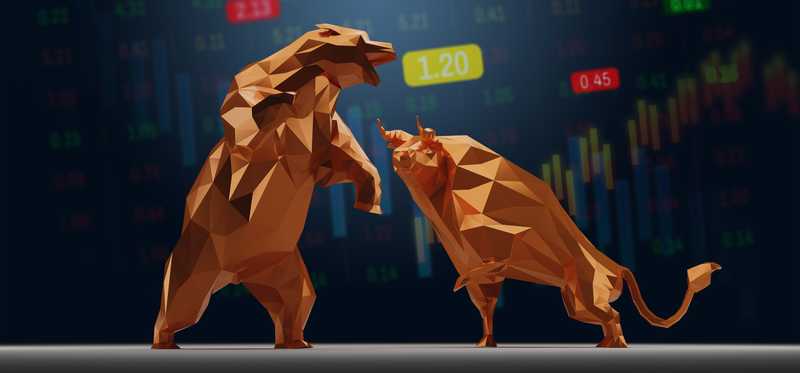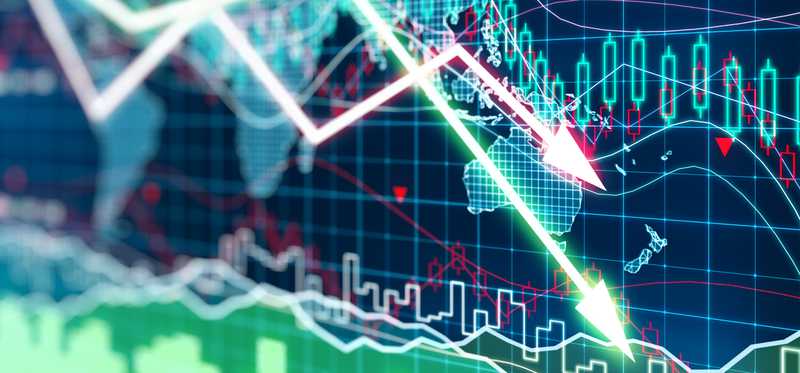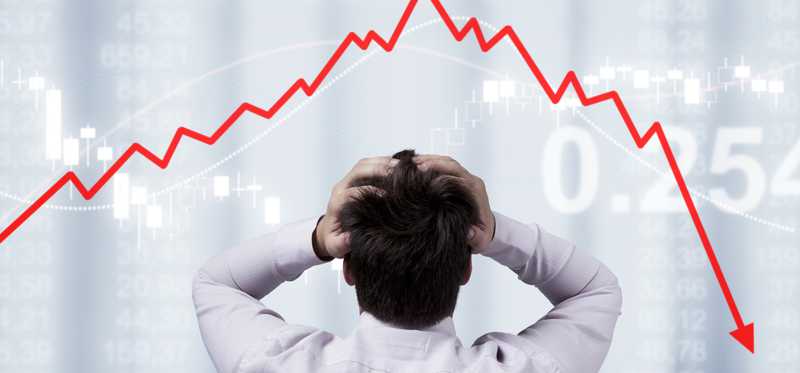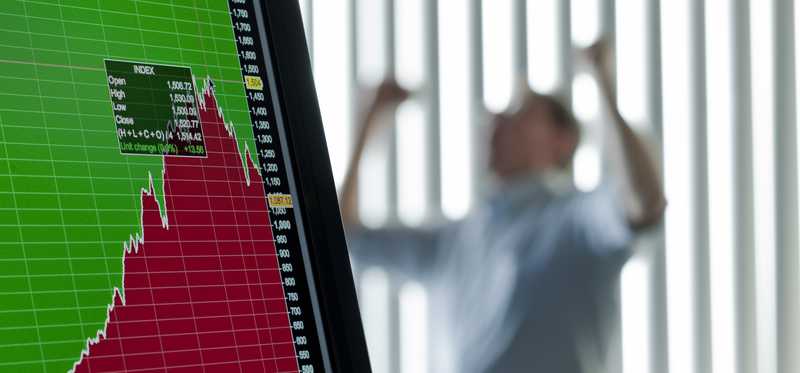15 Reasons Not to Fear the Next Stock Market Crash

15 Reasons Not to Fear the Next Stock Market Crash
Investors may be in for more turmoil in the second half of 2022
While no one can foretell exactly when the next stock market crash will happen, the signs that one could be in the offing have been brewing for some time. Whether or not this means a crash will actually occur is anyone's guess. The machinations of market history have taught us that, on average, a downturn of some kind occurs once every few years. Of course, the potential duration and severity of the downturn are what tend to worry investors.
If you, like many investors, are struggling with heightened emotions right now and fearful of what the next market crash could mean for your portfolio, you've come to the right place. Here are 15 simple reasons not to fear the next stock market crash.
5 Stocks Under $49
Presented by Motley Fool Stock Advisor
We hear it over and over from investors, “I wish I had bought Amazon or Netflix when they were first recommended by The Motley Fool. I’d be sitting on a gold mine!" It's true, but we think these 5 other stocks are screaming buys. And you can buy them now for less than $49 a share! Click here to learn how you can grab a copy of “5 Growth Stocks Under $49” for FREE for a limited time only.
Previous
Next

1. Crashes can't be predicted perfectly
While there are signs in the market that can foreshadow an impending downturn, these signals aren't always perfect. Catchy headlines and interview quotes about an imminent market crash certainly catch investors' attention, and they send even more fear into the markets. But the reality is, a stock market crash can't be foretold with exact certainty, and what that crash will look like is another equally unpredictable variable.
In short, the titans on Wall Street may sound the alarm for a market crash for months on end without one actually coming to fruition. Likewise, one may strike and take investors completely by surprise. In the meantime, making erratic investment decisions based around fear or other heightened emotions stemming from these predictions can harm your portfolio and the long-term health of your investments.
Previous
Next

2. Market crashes are unpreventable
You should be building your portfolio around solid companies that you have faith in as viable long-term investments. As an individual retail investor, you can't control what the market is doing or will do. Market crashes are a regular part of the market cycle, and like it or not, you will probably experience a few throughout your investing journey.
However, the way in which you structure your portfolio to prepare for volatility or periods of downturn can give you increased calm during these cycles and enable you to keep focused on your overall financial goals when other investors are panicking.
Previous
Next

3. Past market crashes have all ended, and so will the next one
If you're unnerved by the potential of another market crash, you're certainly not alone. The good news is, market crashes always end. Some crashes take longer to resolve than others, but the market has proven its ability throughout history to not only rebound but shoot higher than prior to the fall.
ALSO READ: These 3 Stocks Are Safe Bets in the Event of a Market Crash
Previous
Next

4. Market crashes usually precede a robust recovery
The market crash of 2020 certainly wasn't the shortest bear market of all time, but it was relatively brief compared with past ones. Some bear markets have lasted many months or even a few years. Despite the differences and variables at play in historical market crashes, do you know what they all have in common?
Not only did all of these bear markets end, but the recovery that followed eventually exceeded the market's performance prior to the downturn.
Previous
Next

5. A crash isn't the worst thing that can happen to an investment portfolio
While market crashes certainly induce fear and trembling for everyone from the newbie to the seasoned investor, these periods needn't cause you panic or anxiety. Certainly, you should expect to see some of your favorite companies fall significantly during the downturn. And it's true that some companies may not fully recover their share prices.
However, when you have your money diversified into a wide range of companies and sectors, the odds are in your favor. By balancing your investments and ensuring you're not investing too heavily into one type of business, your portfolio will be in a more ideal position to withstand a downturn and weather the market's ups and downs.
5 Stocks Under $49
Presented by Motley Fool Stock Advisor
We hear it over and over from investors, “I wish I had bought Amazon or Netflix when they were first recommended by The Motley Fool. I’d be sitting on a gold mine!" It's true, but we think these 5 other stocks are screaming buys. And you can buy them now for less than $49 a share! Click here to learn how you can grab a copy of “5 Growth Stocks Under $49” for FREE for a limited time only.
Previous
Next

6. A crash can help to differentiate mediocre companies from great ones
Even the greatest companies with the highest brand authority may see their stock prices deflate during a crash. When a quality business with strong leadership and a clear path forward to growth sees share prices fall during a down period, this doesn't automatically make it a bad investment. Share price movement, in and of itself, shouldn't direct your investment decisions.
When share prices move and stay down coinciding with fundamental changes to the business, this may give a long-term investor cause to reconsider a stake in the company. Share price movement can tell a story about the business you're invested in, but it should never be the sole factor that causes you to buy or sell a stock.
Previous
Next

7. A crash can be a great window in the market to buy more stocks
It's not a new idea that you can buy stocks on sale during a crash, but it's worth reiterating. While investment vehicles like fractional shares have made even the most expensive stocks accessible to investors of all ages and trading styles, there's no doubt that a crash offers considerable leeway to expand and diversify your portfolio at bargain-basement prices.
Remember, a cheap share price alone shouldn't induce you to hit the buy button, and you should still research these companies thoroughly before you buy in.
Previous
Next

8. A market crash can test your investing thesis, and that's not a bad thing
No matter your level of investing experience, a market crash can unnerve even the most seasoned of investors. Investing is a lifelong and learning journey, and that road won't be entirely devoid of mistakes. By investing in what you know, and continuing to stay on top of the companies you own, you can ensure that you remain confident in your investments throughout the ups and downs of market cycles.
ALSO READ: Suze Orman Says a Diverse Portfolio Is Important. Here's an Easy Way to Achieve One
Previous
Next

9. A diverse group of stocks can prepare your portfolio for the next downturn
One of the easiest ways to leave your portfolio vulnerable to the whims of the market is to fail to properly diversify the companies that you own. While diversification may seem like a basic core principle to the success of a long-term investor, it's easy to overlook.
Portfolio diversification isn't a one-time thing, either. As the stocks you own grow at varying rates over time, and as you expand your portfolio, the balance of your holdings will naturally fluctuate. Check on your portfolio from time to time to ensure that your basket of holdings still meets your preferred level of risk and that your thesis for each company remains intact.
Previous
Next

10. Not all market crashes look or act the same
The history of the market can offer a certain level of peace of mind in that you know that these events are inevitable and happen every so many years. Of course, that leaves a lot of room for variables. The series of events that preceded past market crashes have varied widely, and the trajectory of each bear market often diverges from the one before it.
Rather than trying to guess what the market will or won't do next, keep your investing strategy straightforward and consistent in both bull and bear markets in order to maximize your long-term returns.
5 Stocks Under $49
Presented by Motley Fool Stock Advisor
We hear it over and over from investors, “I wish I had bought Amazon or Netflix when they were first recommended by The Motley Fool. I’d be sitting on a gold mine!" It's true, but we think these 5 other stocks are screaming buys. And you can buy them now for less than $49 a share! Click here to learn how you can grab a copy of “5 Growth Stocks Under $49” for FREE for a limited time only.
Previous
Next

11. An emergency fund can help you avoid having to sell stocks at a bad time
Market crashes can accompany a variety of events, and an economic downturn is one of the most common. If you're worried about what the market could bring in the months ahead -- in addition to preparing your portfolio by investing in stable companies that you believe are worthwhile long-term investments -- you always want to make sure your rainy day fund is in good shape.
You should have a minimum of six months of expenses set aside, perhaps more depending on your outlay and personal financial needs. Should an unexpected life event occur, this can also save you the trouble of having to cash out your stocks during a down period in the market, hurting your long-term financial goals and causing you to realize permanent portfolio losses in the process.
ALSO READ: Only 44% of Women Have Enough Emergency Savings. Here's How to Build Yours
Previous
Next

12. You don't have to buy or sell during a market crash
One of the most common misconceptions about market crashes is that investors need to take a specific action or enact a new, bold tactic to minimize their losses during these volatile periods. The truth is, there's only one way to realize true losses during a market crash, and that's to sell your stocks because they're temporarily down.
In other words, when you sell a stock during a downturn, without any reasons tied to the business itself, you take short-term movements in your portfolio and turn them into actual losses. There are certainly valid reasons to sell stocks. For example, if your thesis for buying the company in the first place has changed, it may be time to reevaluate that investment.
It's also true that a market crash can be a great time to buy more of the stocks you love at far more favorable prices than usual. That being said, if you don't have much spare investing capital, you're struggling with your investing mindset, or any other reason, there's nothing wrong with simply leaving your portfolio be for a time.
Previous
Next

13. You understand the difference between stock and market actions
This is one of the most fundamental reasons that you as long-term investor needn't fear a market crash. Admittedly, it's no fun to watch the stocks you own follow a steady path downward when the market tumbles. But market crashes are temporary, and when you're investing in great companies for five, 10, 15, or even 20 years, a few months (or even a few years) of turmoil are a relatively brief period against that broader backdrop.
Previous
Next

14. You know your risk tolerance
Understanding your risk tolerance is one of the most important assessments you can make as you build your portfolio. The level of risk you're comfortable with will change throughout your investing journey, and it will inform the companies you do and don't want to incorporate into your portfolio. If you're an investor that is comfortable with higher-risk companies, know that these are often the first companies to be hit the hardest when a downturn appears on the horizon.
On the flip side, if you have a relatively low risk tolerance and prefer to invest primarily in established, stable companies, you'll likely experience more gradual portfolio growth but experience less volatility than some other investors. An ideal portfolio balance often has a mix of companies with a range of risk profiles that can lend differing catalysts for growth in a variety of markets.
Previous
Next

15. You regularly analyze the companies you own
Evaluating your investing thesis for the companies you own, not just when you buy them but again throughout the years, is key to ensure that you retain the highest-quality investments for your portfolio. Realign your short- and long-term investing goals as you achieve and set new objectives. Regularly check on the companies that you own to ensure they fit with your ideal portfolio balance and the financial future you're working toward.
5 Stocks Under $49
Presented by Motley Fool Stock Advisor
We hear it over and over from investors, “I wish I had bought Amazon or Netflix when they were first recommended by The Motley Fool. I’d be sitting on a gold mine!" It's true, but we think these 5 other stocks are screaming buys. And you can buy them now for less than $49 a share! Click here to learn how you can grab a copy of “5 Growth Stocks Under $49” for FREE for a limited time only.
Previous
Next

Investing for the long term requires patience and fortitude, but it's worth it
Invest regularly in great stocks and keep holding them throughout the ups and downs of the market. Trim your portfolio when and where you need to. Invest according to your risk tolerance and personal investment preferences. Invest in what you know and understand. Always remember, you don't have to do anything with your portfolio during the next market crash. In fact, leaving it alone might be the best thing you can do for your portfolio.
The Motley Fool has a disclosure policy.
Previous
Next
Invest Smarter with The Motley Fool
Join Over Half a Million Premium Members Receiving…
- New Stock Picks Each Month
- Detailed Analysis of Companies
- Model Portfolios
- Live Streaming During Market Hours
- And Much More
READ MORE
HOW THE MOTLEY FOOL CAN HELP YOU
-
Premium Investing Guidance
Market beating stocks from our award-winning service
-
The Daily Upside Newsletter
Investment news and high-quality insights delivered straight to your inbox
-
Get Started Investing
You can do it. Successful investing in just a few steps
-
Win at Retirement
Secrets and strategies for the post-work life you want.
-
Find a Broker
Find the right brokerage account for you.
-
Listen to our Podcasts
Hear our experts take on stocks, the market, and how to invest.
Premium Investing Services
Invest better with The Motley Fool. Get stock recommendations, portfolio guidance, and more from The Motley Fool's premium services.